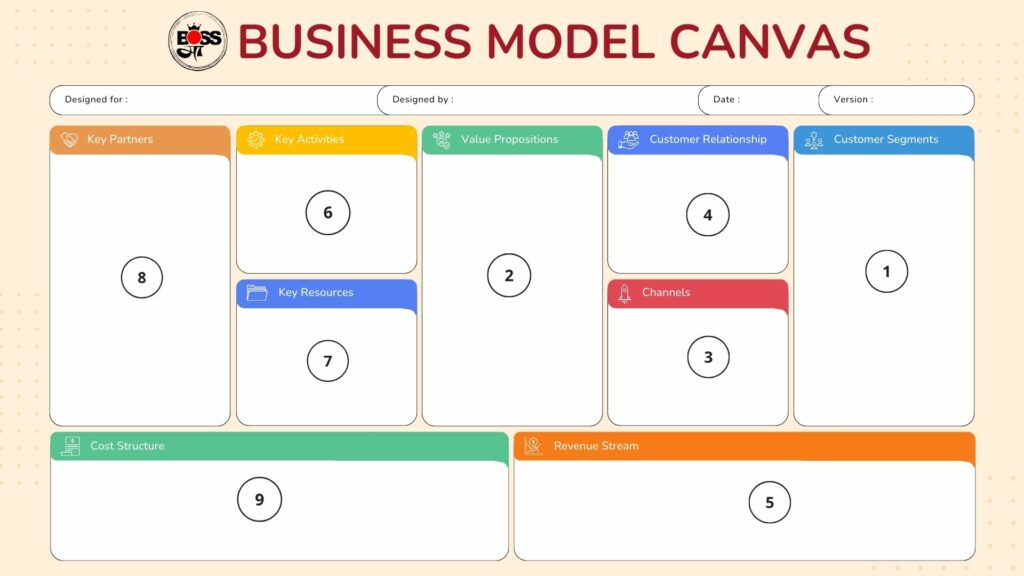Effective Business Models for Home-Based and Online Small Businesses
In today’s fast-paced digital landscape, starting a business from the comfort of your own home has never been more achievable. The rise of technology and the internet has paved the way for countless entrepreneurs to explore innovative avenues for income generation, leading to the emergence of a variety of successful models. However, to thrive in this competitive environment, it’s essential to adopt an effective business model for home small and online businesses that aligns with your skills, passions, and market demands. In this article, we’ll explore some of the most effective business models that can help you leverage your resources, minimize risks, and maximize profits, enabling you to build a sustainable venture from your living room or wherever you find inspiration. Whether you’re a seasoned marketer, a budding artist, or a passionate cook, understanding the right model can set you on the path to entrepreneurial success.
Understanding the Importance of a Strong Business Model
A strong business model is the backbone of any successful enterprise, providing a blueprint for how a company creates, delivers, and captures value. For aspiring entrepreneurs, particularly those running home, small, and online businesses, understanding this concept is crucial. A well-defined business model not only outlines the products or services being offered but also clarifies the target market, revenue streams, and operational structure necessary for success. Without this clarity, businesses often struggle to differentiate themselves in a competitive landscape, leading to misaligned strategies and wasted resources.
In the context of home, small and online businesses, a robust business model can help identify unique selling propositions that set a company apart from the plethora of competitors that exist in the digital space. This is essential for establishing a loyal customer base. An effective model will also take into consideration the ever-changing market dynamics and consumer behaviours, ensuring that the business remains relevant and adaptable. By focusing on customer needs and preferences, entrepreneurs can create offerings that not only attract attention but also foster long-term relationships, driving repeat business and referrals.
Additionally, a clearly articulated business model assists in laying the groundwork for financial planning and sustainability. For home-based and online businesses, understanding fixed and variable costs, pricing strategies, and potential revenue streams is integral to forecasting profits and securing investments. A solid model encourages careful financial management, allowing business owners to make informed decisions about scaling their operations, investing in marketing efforts, or expanding their product lines. Ultimately, this foresight can mitigate risks and enhance the chances of survival in a competitive environment.
Moreover, the importance of a strong business model extends beyond operational mechanics; it plays a vital role in shaping the company’s culture and vision. When everyone involved understands the business model, from the owner to any employees or collaborators, there is a greater sense of alignment toward common goals. This shared understanding fosters collaboration and innovation, as team members are more likely to contribute ideas and solutions when they comprehend the overarching objectives of the business. In conclusion, a strong business model is not merely a theoretical exercise but a key factor in driving the success of home, small, and online businesses, guiding them toward sustainable growth and resilience.

Key Components of a Successful Business Model
A successful business model is fundamentally the blueprint for how a company creates, delivers, and captures value. For home small and online businesses, this model often requires a unique approach that considers the digital landscape and the specific needs of their target audience.
- One key component is the value proposition, which clearly defines what makes the product or service appealing to customers. This could be anything from affordability, convenience, or specialized offerings that cater to niche markets. By identifying a strong value proposition, a business can differentiate itself from competitors and attract a loyal customer base.
- Equally important is understanding the target market. For small online businesses, conducting thorough market research can help identify who their potential customers are, what their purchasing behaviors are, and how they prefer to interact with brands.
- By tailoring marketing strategies and product offerings based on these insights, businesses can create meaningful connections with their audience. This personalized approach not only enhances customer satisfaction but also fosters repeat business, which is vital for long-term success.
- Another pillar of an effective business model is the revenue generation strategy. Businesses should explore diverse avenues for income, such as subscription services, one-time purchases, or tiered pricing structures. For online ventures, leveraging platforms that facilitate e-commerce can simplify transactions and expand reach.
- Additionally, incorporating upselling and cross-selling techniques can boost revenue without requiring significant increases in effort or expense. Flexibility in pricing strategies can further enhance a business’s ability to adapt to changing market demands and consumer preferences.
- Finally, operational efficiency cannot be overlooked. For home, small and online businesses, embracing technology can streamline processes, from inventory management to customer service. By automating repetitive tasks and leveraging digital tools, entrepreneurs can focus more on strategic growth initiatives. Moreover, a clear understanding of key performance indicators (KPIs) allows business owners to measure success and make timely adjustments to their strategies.
Ultimately, building a robust business model tailored to the unique characteristics of home small and online businesses is essential for achieving sustainable growth and profitability.
